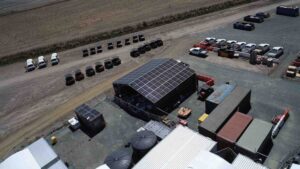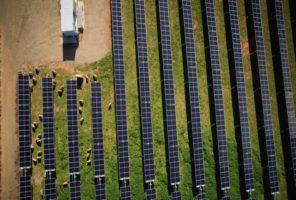Danish wind turbine manufacturing giant Vestas has accelerated its goal for producing zero-waste turbines with a new promise to deliver fully recyclable turbine blades by 2030.
The pledge was made in a “circularity roadmap” outlined by Vestas this week, which also came as Vattenfall declared that no turbine blades would go to landfill by 2030, an important step given that at least 20,000 turbines will be decommissioned in Europe and the US in coming years.
The new Vestas commitments include a goal of increasing material efficiency by 90%, achieving 100% rotor recyclability, and reducing supply chain waste by 50%, all by 2030.
Vestas has also committed to expand its efforts to refurbish and reuse turbine components, while simultaneously regionalising its repair and refurbishment infrastructure.
The major components of a turbine are largely refurbished already, according to Vestas, but the company has still committed to achieving a 55% total refurbished component utilisation by 2030 and 75% by 2040, thanks in large part by creating new repair loops for minor components.
Vestas has also committed to reducing the amount of manufacturing waste ending up in landfills to less than 1%, along with ensuring over 94% of manufacturing materials are recycled by 2030. This represents a significant increase from the 52% worth of materials that are recycled today.
Meanwhile, Swedish power company Vattenfall would similarly commit to an immediate landfill ban on decommissioned wind turbine blades as well as work towards a 100% recycling rate for wind turbine blades by 2030.
“It is no longer acceptable for composite waste from the wind industry to be placed in landfills, even though specific country legislation allows for this,” said Eva Philipp, Vattenfall’s Head of Environment and Sustainability Business Area Wind.
“Achieving 50% recycling by 2025 and 100 percent by 2030 is a big challenge. Solutions to tackle this challenge do not exist in large scale today, so significant efforts are needed to reach this long-term goal.










